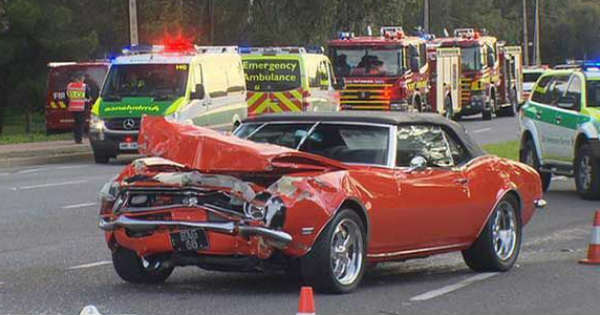Getting involved in a car accident can be a stressful and overwhelming experience. In the aftermath, communicating with your insurance company is crucial to ensure a smooth claims process. However, what you say – or don’t say – can significantly impact the outcome. This is why it is also critical to meet with an experienced car accident attorney in Kansas City to help you navigate these complex situations and to make sure you get the compensation you deserve. In this blog, we’ll explore the dos and don’ts of talking to your insurance company after a car accident.

Things You Should Say When Speaking to Insurance Company After Your Car Accident:
In the aftermath of a car accident, it is crucial to initiate communication with your insurance company by providing essential details, describing the incident objectively, and facilitating a transparent exchange of information. Here is a list of things you can and should say to your insurance company after the accident:
1. Provide basic information: Start by giving your insurance company the essential details, such as your name, policy number, and the date, time, and location of the accident. Stick to the facts and avoid embellishing or speculating about the events.
2. Describe the accident objectively: When recounting the accident, be factual and objective. Stick to the facts, such as the sequence of events leading up to the collision, road conditions, and weather. Avoid assigning blame or admitting fault – leave the investigation to the professionals.
3. Share contact information: Exchange contact information with the other party involved in the accident. Provide this information to your insurance company, including the names, phone numbers, and insurance details of all parties involved.
4. Document the scene: If possible, take pictures of the accident scene, vehicle damage, and any relevant road signs or signals. This visual evidence can be invaluable during the claims process and can help your insurance company better understand the circumstances of the accident.
5. Seek medical attention: If you or anyone else involved in the accident has sustained injuries, seek medical attention promptly. Share the medical reports and records with your insurance company to support your claims for medical expenses.
By adhering to these key practices, you not only streamline the claims process but also contribute to a more accurate and efficient resolution of your car accident case with your insurance company.
Things You Should Not Say When Speaking to Insurance Company After Your Car Accident:
When communicating with your insurance company after a car accident, it is imperative to steer clear of admitting fault, speculating about the incident, divulging excessive details about injuries, accepting premature settlements, and speaking without seeking legal advice. Here are some things you should absolutely NOT say when speaking to your insurance company after the accident:
1. Admit fault: One of the most critical things to avoid is admitting fault for the accident. Even if you believe you may have contributed to the collision, it’s essential not to admit guilt as it can impact your claim negatively. Let the insurance investigators determine fault based on the available evidence.
2. Speculate or guess: Stick to the facts and avoid speculating about the cause of the accident or the extent of damages. Providing accurate and verifiable information will strengthen your case during the claims process.
3. Discuss injuries in detail: While it’s important to report injuries, avoid going into too much detail. Consult with your healthcare provider before providing a comprehensive account of your injuries to your insurance company. This can prevent misunderstandings and ensure accurate documentation.
4. Accept a quick settlement: Insurance companies may sometimes offer a quick settlement to expedite the process. However, it’s crucial not to accept any settlement before fully assessing the extent of damages, both to your vehicle and yourself. Consult with legal professionals if necessary to ensure you receive fair compensation.
5. Speak without legal advice: If the situation escalates or becomes complicated, it’s advisable to consult with a legal professional before providing any statements to your insurance company. This can help protect your rights and ensure that you don’t inadvertently say something that may harm your case.
By avoiding these pitfalls in your conversations with your insurance company, you safeguard your claim, ensuring a fair and accurate assessment of the accident while protecting your legal rights throughout the claims process. Clear and concise communication with your insurance company is essential after a car accident. By sticking to the dos and avoiding the don’ts, you can navigate the conversation effectively, ensuring a smoother claims process and protecting your interests in the aftermath of a collision.






















